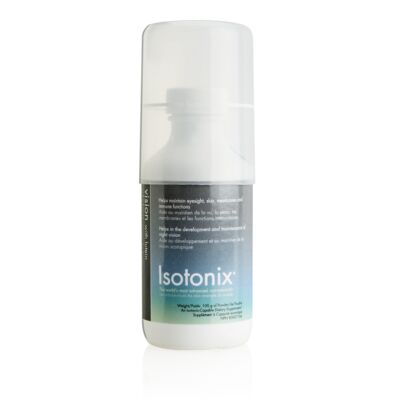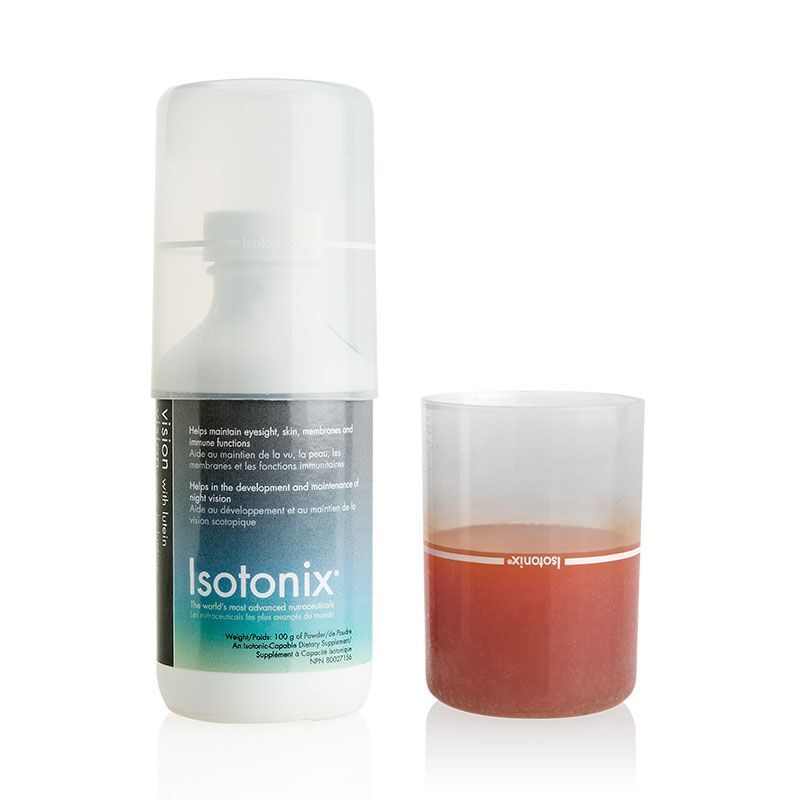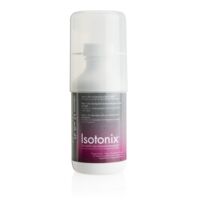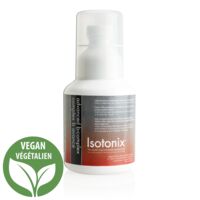Discover a new you with a healthy lifestyle change

Isotonix® Vision with Lutein
sku C13044
$57.86 CAD
$1.16 CAD Cashback
This product qualifies for free or reduced cost shipping. Learn More
Primary Benefits of Isotonix® Vision with Lutein
See the difference.
- Helps maintain eyesight
- Helps in the development and maintenance of night vision
- Also helps maintain skin membranes and immune functions
Why the Isotonix Delivery System is Great!
What Makes Isotonix Vision with Lutein Unique?
Isotonix® Vision with Lutein is an isotonic-capable dietary supplement, combining vitamins and minerals with lutein, quercetin, zeaxanthin and bilberry, designed to help maintain healthy eyesight. It also helps maintain skin membranes and immune function, and helps in the development and maintenance of night vision. Maintaining vision health is vital, especially during the aging process. When light is reflected off an object, the light waves from the object enter the eye through the cornea, which is the transparent front part of the eye that covers the iris, pupil and anterior chamber. The light is then filtered through to the pupil, which is the black circular or slit shaped opening in the center of the iris that regulates the amount of light that enters the eye. The iris is the coloured portion of the eye that controls the pupil. The light then continues through the lens, located behind the iris and pupil, and made up of transparent proteins called crystallins. The light waves are bent or converged by the lens and the cornea to just behind the surface of the lens where it is then reversed and inverted. The light waves then pass through the vitreous humor, the clear gel between the lens and the retina, which is a thin layer of neural cells that lines the back of the eyeball.
The macula is a small, yellowish spot located in the middle of the retina that is responsible for the detail of vision by providing visual sharpness and colour perception. The retina consists of a large number of photoreceptor cells, which contain a particular protein molecule called an opsin. In humans, there are two types of opsins: rod opsins and cone opsins. Each opsin absorbs a photon (light particle) and transmits a signal to the cell through a signal transduction pathway, resulting in hyper-polarization of the photoreceptor. The intricate process that contributes to visual degradation usually develops over a long time-period, making the need for a protective eye approach even more important. Free radical activity is a constant factor in the body’s metabolism. Waiting to begin an antioxidant defense against oxidative stress until the prime senior years may be too late. Promoting visual health is important and can be accomplished through a healthy diet, exercise and the right supplementation.
FloraGLO® is a registered trademark of Kemin Industries, Inc.
Product Classifications
Gluten-Free - The finished product contains no detectable gluten (<10ppm gluten)
No Detectable GMOs - The finished product contains no detectable genetically-modified organisms
Isotonic-Capable Drinkable Supplements - Easy-to-swallow supplements in liquid form are immediately available to the body for absorption
Quality Standards - GMP Operations and Standardised Ingredients
Checked For: Heavy Metals, Microbiological Contaminants, Allergens, Residual Solvents, Potency, Purity and Identity

Isotonix Delivery System

Isotonix - the World's Most Advanced Nutraceuticals
Isotonic, which means “same pressure,” bears the same chemical resemblance of the body’s blood, plasma and tears. All fluids in the body have a certain concentration, referred to as osmotic pressure. The body’s common osmotic pressure, which is isotonic, allows a consistent maintenance of body tissues. In order for a substance to be absorbed and used in the body’s metabolism, it must be transported in an isotonic state. Isotonix dietary supplements are delivered in an isotonic solution. This means that the body has less work to do to in obtaining maximum absorption. The isotonic state of the suspension allows nutrients to pass directly into the small intestine and be rapidly absorbed into the bloodstream. With Isotonix products, little nutritive value is lost, making the absorption of nutrients highly efficient while delivering maximum results.
Key Ingredients
Lutein and Zeaxanthin
Lutein and zeaxanthin are carotenoids found together in many fresh fruits and vegetables. Within the eye, they are found as pigments in the macula and retina. Lutein and zeaxanthin act as antioxidants that help maintain eyesight. They help to build macular pigment density, a critical factor in the health of the macula and retina in relation to the clarity of the lens. They also act as filters of blue-light to protect the photoreceptor cells of the retina from light damage.
Quercetin
Quercetin is a bioflavonoid that is an excellent antioxidant working synergistically with vitamin C to strengthen the walls of the intricate blood vessels in the eye. It also helps to maintain lens transparency. Quercetin has been shown to inhibit the enzyme, aldose reductase. Aldose reductase has been known to contribute to poor eye health.
L-Taurine
L-Taurine is a building block for all the other amino acids. It aids in the transport of potassium, sodium, calcium and magnesium in and out of cells, thus helping to generate nerve impulses. It is a non-protein amino acid and is found in high amounts in the brain, retina, myocardium, skeletal and smooth muscle, platelets and neutrophils. It is plentiful in the fluids of muscle, lungs and nerve tissue. Dietary taurine mainly comes from animal food sources. Taurine is also present, in lower levels, in plant food sources like seaweed. It is classified as an essential amino acid, but taurine also has antioxidant and membrane-stabilizing activities. It helps protect the eyes from the harmful effects of UV light and stabilizes the membranes in the cones cells of the eye.
Lycopene
Fruits and vegetables, such as tomatoes, pink grapefruit and watermelon receive their red pigmentation from a carotene called lycopene. Lycopene is one of the carotenes and a member of the carotenoid family. Lycopene offers a wide range of benefits including being a powerful antioxidant. More recent research suggests that lycopene, like beta-carotene, may play an important role in keeping healthy vision.
Vitamin A (Beta-Carotene/Vitamin A pre-cursor)
Vitamin A is a fat-soluble vitamin. Sources of vitamin A include organ meats (such as liver and kidney), egg yolks, butter, carrot juice, squash, sweet potatoes, spinach, peaches, fortified dairy products and cod liver oil. Vitamin A is also part of a family of compounds, including retinol, retinal and beta-carotene. Beta-carotene, also known as pro-vitamin A, can be converted into vitamin A when additional levels are required. Vitamin A helps to promote healthy night vision and a healthy immune system.
Vitamin C (Ascorbic Acid)
Vitamin C is found in peppers (sweet, green, red, hot red and green chili), citrus fruits, brussels sprouts, cauliflower, cabbage, kale, collards, mustard greens, broccoli, spinach, guava, kiwi fruit, currants and strawberries. Nuts and grains contain small amounts of vitamin C. It is important to note that cooking destroys vitamin C activity. Vitamin C is integral in supporting a healthy immune system. The body does not manufacture vitamin C on its own, nor does it store it. Therefore, vitamin C must be acquired through diet and supplementation.
Vitamin E (DL-Alpha-Tocopheryl-Acetate)
The most valuable sources of dietary vitamin E include vegetable oils, margarine, nuts, seeds, avocados and wheat germ. Safflower oil contains large amounts of vitamin E (about two thirds of the RDA in ¼ cup), and there are trace amounts in corn oil and soybean oil. Vitamin E is actually a family of related compounds called tocopherols and tocotrienols. Vitamin E is available in a natural or synthetic form. In most cases, the natural and synthetic forms are identical, except the natural form of vitamin E is better absorbed and retained in the body. The natural form of alpha-tocopherol is known as "d-alpha tocopherol." The synthetic "dl-" form is the most common form found in dietary supplements. For those individuals watching their dietary fat consumption, which is relatively common in the world of dieting, vitamin E intake is likely to be low, due to a reduced intake of foods with high fat content. The main health benefit of supplemental vitamin E comes from its immune-boosting antioxidant activity.
Bilberry Extract
Bilberry extract is derived from the leaves and berry-like fruit of a common European shrub closely related to the blueberry. Extracts of the ripe berry are known to contain flavonoid pigments known as anthocyanins. They act as powerful antioxidants. Scientific studies confirm a positive effect on vision. Bilberry supports night vision and eases eyestrain while nourishing eye tissue, and supporting healthy circulation in the eye. Many of the bioflavanoids in bilberry have antioxidant and anti-inflammatory effects, strengthening the structural integrity of blood vessels and promoting healthy circulation to small capillaries that deliver oxygen and nutrients to the eyes.
Chromium
Chromium is found naturally in some cereals, meats, poultry, brewer’s yeast, broccoli, prunes mushrooms, fish and beer. Chromium is an essential trace mineral.
Copper
The richest sources of dietary copper derive from organ meats, seafood, nuts, seeds, wheat bran cereal, whole grain products and cocoa products. Copper may have some antioxidant properties and acts as a component of enzymes in iron metabolism.
Zinc
Zinc is largely found in fortified cereals, red meats, eggs, poultry and certain seafood, including oysters. It is a component of multiple enzymes and proteins. It is also involved in the regulation of gene expression. Zinc is an essential trace mineral that has functions in approximately 300 different enzyme reactions. Thus, zinc plays a part in almost all biochemical pathways and physiological processes. More than 90 percent of the body’s zinc is stored in the bones and muscles, but zinc is also found in virtually all body tissues. It has been claimed that zinc also helps with immune system support. Because zinc is involved in such a great number of enzymatic processes, it has been found to positively affect a large range of functions, including digestion, energy production, growth, cellular repair, collagen synthesis, bone strength, cognitive function and carbohydrate metabolism.
FAQ
- How is the Isotonix Vision with Lutein different from other vision formulas?
Isotonix Vision with Lutein contains essential vitamins and minerals that contribute to overall vision health. Additionally, it is isotonic form, which contributes to maximum absorption by the body. - What if I am taking a prescription; is Isotonix Vision with Lutein safe?
While all of the ingredients in Isotonix Vision with Lutein are found in nature and unlikely to interfere with any prescription, it would be wise to contact your physician before including this or any other dietary supplement in your nutritional regimen. - What studies have been done to show that the ingredients in Isotonix Vision with Lutein are effective?
Studies show that the carotenoids: lutein, zeazanthin and B-C will help support eye health. According to the results of a US government study led in part by researchers at Johns Hopkin’s Wilmer Eye Institute, if those who were at risk for vision degradation chose to use daily supplements of vitamins and zinc, the risk of vision loss for more than 300,000 people could be avoided over the next five years. In October 2001, the National Eye Institute published the results of a seven-year study called the Age-Related Eye Disease Study (AREDS). The study showed that a high dose combination of vitamin C, vitamin E, beta-carotene and zinc could significantly reduce the risk of certain factors leading to visual degradation by about 25 percent. A nutritional supplement featuring this unique combination could allow you to enjoy quality of eyesight into your golden years.
Science
- Bahrami, H., et al. Lutein supplementation in retinitis pigmentosa: PC-based vision assessment in a randomized double-masked placebo-controlled clinical trial [NCT00029289]. BMC Ophthalmology. 6: 23, 2006.
- Bartlett, H. and Eperjesi, F. Age-related macular degeneration and nutritional supplementation: a review of randomized controlled trials. Ophthalmic & Physiological Optics. 23(5): 383-399, 2003.
- Bartlett, H. and Eperjesi, F. Age-related macular degeneration and nutritional supplementation: a review of randomized controlled trials. Ophthalmic & Physiological Optics. 23(5): 383-399, 2003.
- Berendschot, T., et al. Lens aging in relation to nutritional determinants and possible risk factors for age-related cataract. Archives of Ophthalmology. 120(12): 1732-1737, 2002.
- Berendschot, T., et al. Lens aging in relation to nutritional determinants and possible risk factors for age-related cataract. Archives of Ophthalmology. 120(12): 1732-1737, 2002.
- Bone, R, et al. Lutein and zeaxanthin dietary supplements raise macular pigment density and serum concentrations of these carotenoids in humans. Journal of Nutrition. 133(4): 992-998, 2003.
- Bone, R., et al. Lutein and zeaxanthin in the eyes, serum and diet of human subjects. Experimental Eye Research. 71(3): 239-245, 2000.
- Bone, R., et al. Macular pigment response to a supplement containing meso-zeaxanthin, lutein and zeaxanthin. Nutrition & Metabolism. 11: 4-12, 2007.
- Bone, R., et al. Macular pigment response to a supplement containing meso-zeaxanthin, lutein and zeaxanthin. Nutrition & Metabolism. 11: 4-12, 2007.
- Bressler, M., et al. Potential public health impact of Age-Related Eye Disease Study results: AREDS report no. 11. Archives of Ophthalmology. 121(11): 1621-1624, 2003.
- Cangemi, F. TOZAL Study: an open case control study of an oral antioxidant and omega-3 supplement for dry AMD. BMC Ophthalmology. 7: 3, 2007.
- Chasan-Taber, L., et al. A prospective study of carotenoid and vitamin A intakes and risk of cataract extraction in US women. The American Journal of Clinical Nutrition. 70(4): 509-516, 1999.
- Chitchumroonchokchai, C., et al. Xanthophylls and alpha-tocopherol decrease UVB-induced lipid peroxidation and stress signaling in human lens epithelial cells. Journal of Nutrition. 134(12): 3225-3232, 2004.
- Chitchumroonchokchai, C., et al. Xanthophylls and alpha-tocopherol decrease UVB-induced lipid peroxidation and stress signaling in human lens epithelial cells. Journal of Nutrition. 134(12): 3225-3232, 2004.
- Christian, P., et al. Zinc supplementation might potentiate the effect of vitamin A in restoring night vision in pregnant Nepalese women. The American Journal of Clinical Nutrition. 73(6): 1045-51, 2001.
- Congdon, N., et al. Responsiveness of dark-adaptation threshold to vitamin A and beta-carotene supplementation in pregnant and lactating women in Nepal. American Journal of Clinical Nutrition. 72(4): 1004-1009, 2000.
- Devamanoharan, P., et al. Prevention of lens protein glycation by taurine. Molecular and Cellular Biochemistry. 177(1-2): 245-250, 1997.
- Hammond Jr., B. and Johnson, M. The age-related eye disease study (AREDS). Nutrition Reviews. 60(9): 283-288, 2002.
- Hankinson, S., et al. Nutrient intake and cataract extraction in women: a prospective study. British Medical Journal. 305(6849): 335-339, 1992.
- Kassoff, A., et al. A randomized, placebo-controlled, clinical trial of high-dose supplementation with vitamins C and E, beta carotene, and zinc for age-related macular degeneration and vision loss: AREDS report no. 8. Archives of Ophthalmology. 119(10): 1417-1436, 2001.
- Mares-Perlman, J., et al. Serum antioxidants and age-related macular degeneration in a population-based case-control study. Archives of Ophthalmology. 113(12): 1518-1523, 1995.
- Richer, S., et al. Double-masked, placebo-controlled, randomized trial of lutein and antioxidant supplementation in the intervention of atrophic age-related macular degeneration: the Veterans LAST study (Lutein Antioxidant Supplementation Trial). Optometry. 75(4): 216-230, 2004.
- Taren, D., et al. The night vision threshold test is a better predictor of low serum vitamin A concentration than self-reported night blindness in pregnant urban Nepalese women. Journal of Nutrition. 134(10): 2573-2578, 2004.
- Varma, S., et al. Diabetic cataracts and flavonoids. Science. 195(4274): 205-206, 1977.
- Wondmikun, Y. Dark adaptation pattern of pregnant women as an indicator of functional disturbance at acceptable serum vitamin A levels. European Journal of Clinical Nutrition. 56(5): 462-466, 2002.
Reviews
Displaying 1 - 5 of 9
07/28/2023
by TestingT
This is a great product
These vitamins work great
Response from Customer Service
07/28/2023
Dear Valued Customer,
Thank you for taking the time to share your thoughts on the Isotonix Vision with Lutein! We are so happy to hear you are pleased with the product!
Thank you again!
The Product Information Team
11/22/2022
by LI CHUL
i love this vision
is vision vegetarian ? thank you
Response from Customer Service
11/23/2022
Dear Valued Customer,
Thank you for taking the time to share your feedback on the Isotonix Vision with Lutein! This product is not vegetarian. If you are interested in a vegan alternative, the Prime Vision is available through ShopGlobal.com!
We hope this helps!
The Product Information Team
01/14/2022
by Fung NanW
A good support for my Eye Health !
I need to be working for hours on the computer and my eyes feel tired and dry at end of day. Since I started taking Lutein , I see the difference. My eyes don't feel so tired and dry. I will continue taking this to support good health for my eyes.
Response from Customer Service
01/14/2022
Dear Valued Customer,
Thank you for taking the time to share your thoughts on the Isotonix Vision with Lutein! We are happy to hear you are pleased with the product!
Thank you again!
The Product Information Team
05/22/2021
by Anonymous
very helpful for my eyes
Great
Response from Customer Service
05/24/2021
Dear Valued Customer,
Thank you for taking the time to share your thoughts on the Isotonix Vision with Lutein! We are happy to hear you are pleased with the product.
Thank you again!
The Product Information Team
09/04/2020
by KIRSHANR
Tired eyes
Being in front of the computer daily for work was exhausting and straining on my eyes. It lead to having blurry vision sometimes too. This product helped improve the health of my eyes, so they didn't feel tired at the end of the day and I didn't have blurry vision anyone!
Response from Customer Service
09/06/2020
Dear Valued Customer,
Thank you for taking the time to share your thoughts on the Isotonix Vision with Lutein! We are happy to hear you are pleased with the product.
Thank you again!
The Product Information Team
- Prev
- Next




